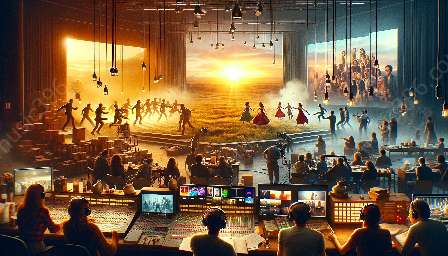The world of pop music is a lucrative industry that often involves complex legal issues surrounding copyright and intellectual property. This topic cluster will provide a comprehensive guide to navigating these issues, specifically focusing on songwriting in the pop music genre. From understanding the legal landscape to protecting creative works, and dealing with challenging scenarios, this guide aims to shed light on the crucial aspects of copyright and intellectual property in the realm of pop music.
The Legal Landscape of Copyright and Intellectual Property
One of the fundamental aspects of navigating copyright and intellectual property in pop music songwriting is understanding the legal landscape. Copyright law grants exclusive rights to the creators of original works, including musical compositions, lyrics, and sound recordings. In the context of pop music, songwriters and composers must be aware of the intricate details of copyright law that pertain to their creations.
Intellectual property law, on the other hand, encompasses a broader spectrum of rights related to intangible assets, including trademarks, patents, and trade secrets. While copyright protects the expression of ideas in music, intellectual property law plays a vital role in safeguarding the commercial aspects of pop music, such as brand identity, merchandising, and performance rights.
Rights of Songwriters in Pop Music
Pop music songwriters have specific rights that are protected under copyright and intellectual property law. These rights include the exclusive right to reproduce, distribute, perform, and create derivative works based on their original compositions. Understanding these rights is crucial for songwriters to assert their creative control over their works and properly benefit from their intellectual property.
Moreover, songwriters also need to navigate the complexities of licensing and royalty agreements in the pop music industry, particularly in the age of digital streaming and online distribution. Licensing their music for use in commercials, films, or television shows, and negotiating fair compensation for their creative contributions are integral parts of protecting their intellectual property.
Protecting Creative Works in Pop Music
In the digital age, protecting creative works in pop music has become increasingly challenging. Unauthorized distribution, piracy, and infringement issues pose significant threats to the intellectual property of songwriters and pop music artists. Implementing effective strategies to safeguard creative works, including registering copyrights, utilizing digital rights management, and pursuing legal action against infringers, is vital for maintaining the integrity and value of pop music compositions.
Furthermore, songwriters and pop music creators can explore the benefits of joining performing rights organizations (PROs) to ensure that they receive appropriate compensation for the public performance of their works. PROs play a pivotal role in collecting royalties on behalf of songwriters and composers, offering valuable support in managing the intricacies of intellectual property rights in the pop music landscape.
Navigating Challenging Issues in the Pop Music Industry
With the evolution of technology and the globalization of the music market, songwriters and pop music professionals encounter a myriad of challenging issues related to copyright and intellectual property. These issues may include unauthorized sampling, disputes over songwriting credits, and contractual disagreements with music labels and publishers.
Addressing these challenges requires a nuanced understanding of copyright law, contract negotiations, and proactive measures to protect creative assets. Harnessing the power of legal counsel, industry resources, and professional networks can empower pop music songwriters to effectively navigate and resolve complex disputes, ensuring the preservation of their intellectual property rights.
Conclusion
Navigating copyright and intellectual property in pop music songwriting is an essential endeavor for creators and professionals in the industry. By understanding the legal landscape, asserting their rights, protecting their creative works, and addressing challenging issues, pop music songwriters can position themselves to thrive in a competitive and dynamic environment while preserving the integrity of their artistic contributions.























